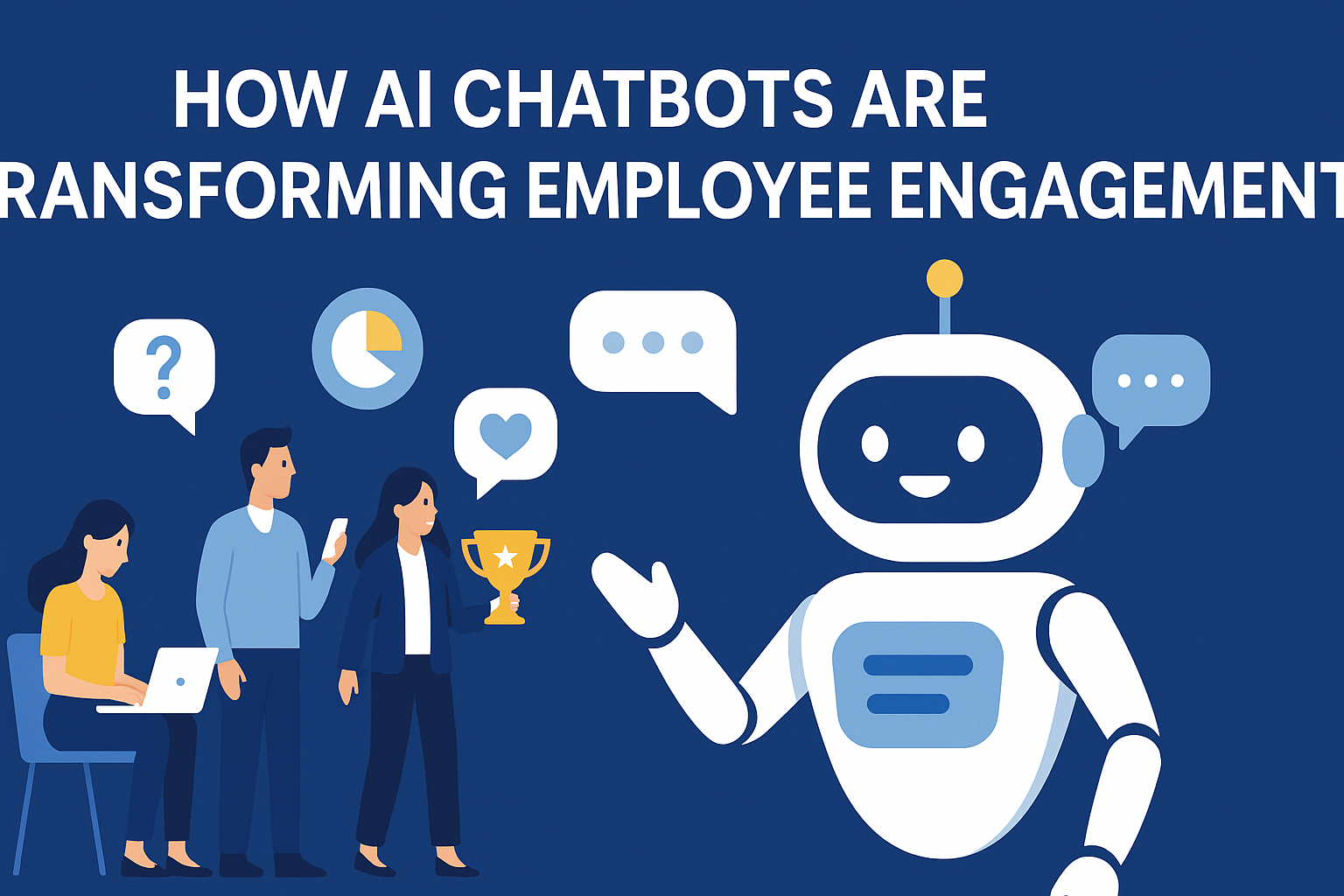How AI Chatbots Are Transforming Employee Engagement

Employee engagement has become the holy grail of workplace success. Yet despite countless surveys, team-building exercises, and engagement initiatives, many organizations still struggle to create meaningful connections with their workforce. The solution might be more straightforward than expected: AI chatbots.
These intelligent systems are revolutionizing how companies interact with employees, offering 24/7 support, personalized experiences, and instant access to information. From onboarding new hires to providing mental health resources, AI chatbots are reshaping the employee experience in ways that traditional HR approaches simply cannot match.
What Are AI Chatbots?
AI chatbots are computer programs designed to simulate human conversation through artificial intelligence and natural language processing. Unlike simple rule-based systems, modern AI chatbots can understand context, learn from interactions, and provide increasingly sophisticated responses.
In the workplace, these digital assistants serve as virtual HR representatives, capable of handling everything from policy questions to career guidance. They operate around the clock, processing multiple conversations simultaneously while maintaining consistent, helpful responses.
Common Engagement Challenges in Modern Workplaces
Remote work has amplified existing engagement issues while creating new ones. Employees often feel disconnected from their colleagues and company culture, particularly in hybrid work environments where face-to-face interactions are limited.
Communication gaps represent another significant challenge. Traditional HR departments, while well-intentioned, cannot provide instant responses to every employee query. This delay in communication can lead to frustration and disengagement, especially among younger workers who expect immediate digital interactions.
Many employees also struggle to access relevant information quickly. Whether it's understanding benefits, finding training resources, or knowing who to contact for specific issues, navigating corporate systems can be overwhelming and time-consuming.
How AI Chatbots Improve Employee Engagement
AI chatbots address these challenges by providing immediate, personalized support. They can answer routine questions instantly, freeing up HR professionals to focus on more complex, strategic initiatives that require human insight and empathy.
These systems excel at delivering consistent information. Every employee receives the same accurate answers to policy questions, eliminating confusion and ensuring everyone has equal access to important information.
Personalization capabilities allow chatbots to tailor interactions based on individual employee profiles, preferences, and history. This creates more relevant and engaging experiences that feel less corporate and more conversational.
Key Benefits of AI Chatbots for Employee Engagement
The most immediate benefit is availability. Employees can access support at any time, regardless of time zones or business hours. This is particularly valuable for global organizations with distributed teams.
Cost efficiency represents another significant advantage. While initial implementation requires investment, chatbots can handle thousands of simultaneous conversations without additional staffing costs. This scalability makes comprehensive employee support economically viable for organizations of all sizes.
Data collection capabilities provide valuable insights into employee concerns and engagement patterns. AI chatbots in HR management systems can identify trending topics, common pain points, and areas where additional support or resources might be needed.
Real-World Examples and Use Cases
Many organizations are successfully implementing AI chatbots for various engagement purposes. Some companies use chatbots for onboarding, guiding new employees through paperwork, introductions, and initial training modules in an interactive, engaging manner.
Mental health and wellness support represents another growing application. Chatbots can provide immediate resources, conduct wellness check-ins, and connect employees with appropriate support when needed.
Performance management and career development also benefit from chatbot integration. These systems can remind employees about goal-setting deadlines, provide career guidance, and suggest relevant training opportunities based on individual career paths.
Challenges and Limitations
Despite their benefits, AI chatbots are not without limitations. Complex emotional situations still require human intervention. While chatbots can provide initial support and resources, they cannot replace genuine human empathy and understanding in sensitive situations.
Privacy concerns must be carefully managed. Employees need assurance that their conversations with chatbots are secure and that personal information is protected according to privacy regulations.
Implementation challenges include ensuring chatbots are properly trained on company-specific information and maintaining accuracy as policies and procedures evolve.
The Future of AI Chatbots in Employee Experience
The technology continues to advance rapidly. Future chatbots will likely offer even more sophisticated emotional intelligence, better integration with existing HR systems, and enhanced predictive capabilities to proactively address engagement issues.
Voice-enabled interactions and multilingual support will make these systems more accessible to diverse workforces. Integration with other workplace technologies will create seamless, comprehensive digital employee experiences.
Revolutionising Workplace Connection
AI chatbots represent a fundamental shift in how organizations approach employee engagement. By providing immediate, personalized, and consistent support, these systems address many traditional engagement challenges while creating new opportunities for meaningful workplace connections.
The key to success lies in viewing chatbots as supplements to, rather than replacements for, human interaction. When implemented thoughtfully, they enhance the employee experience by handling routine tasks efficiently while freeing up human resources for more complex, relationship-building activities.
Organizations considering AI chatbot implementation should start with clear objectives, involve employees in the design process, and maintain focus on genuine engagement rather than just operational efficiency.





